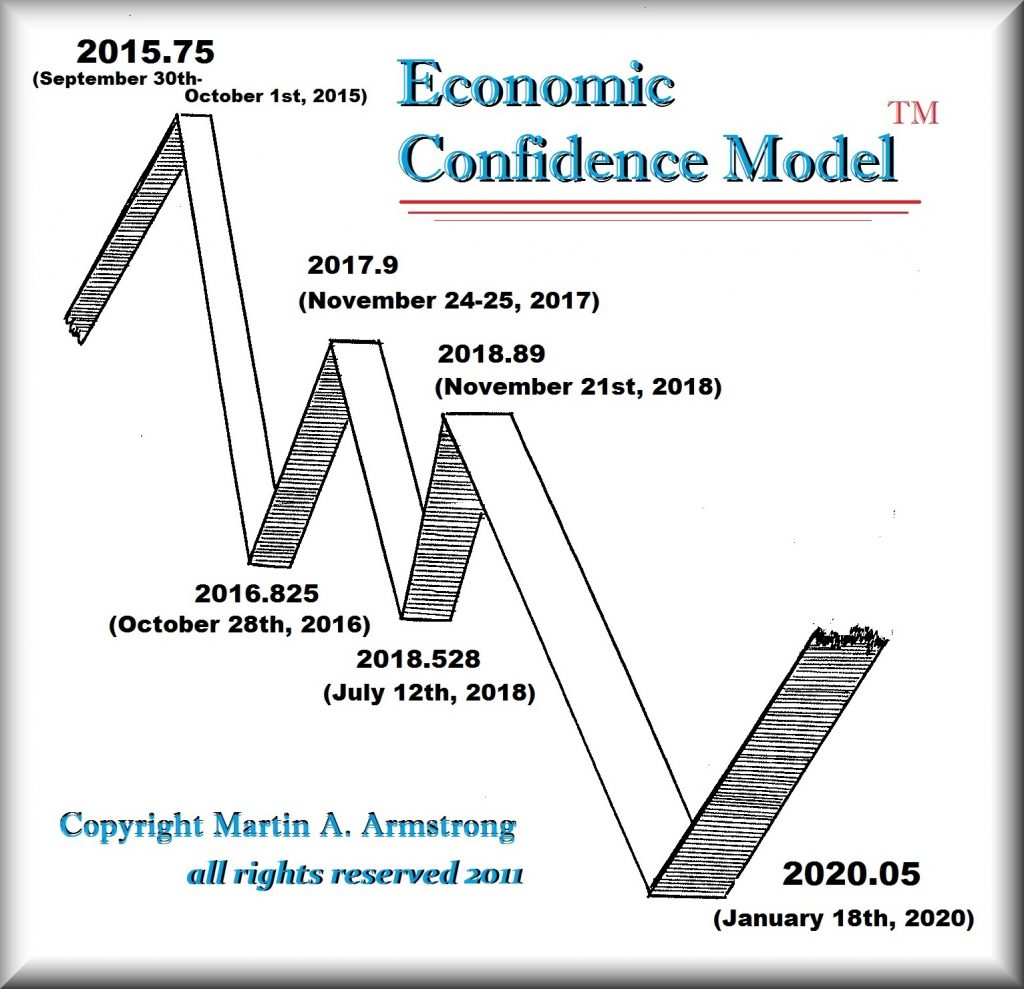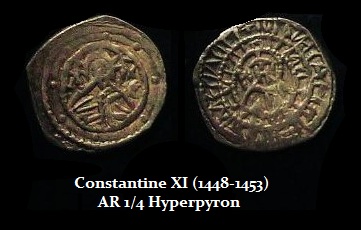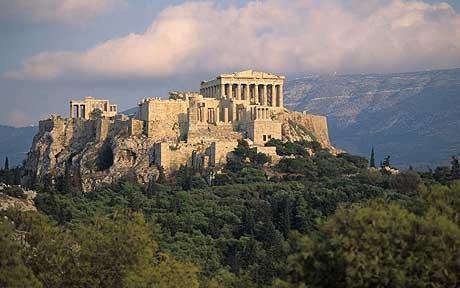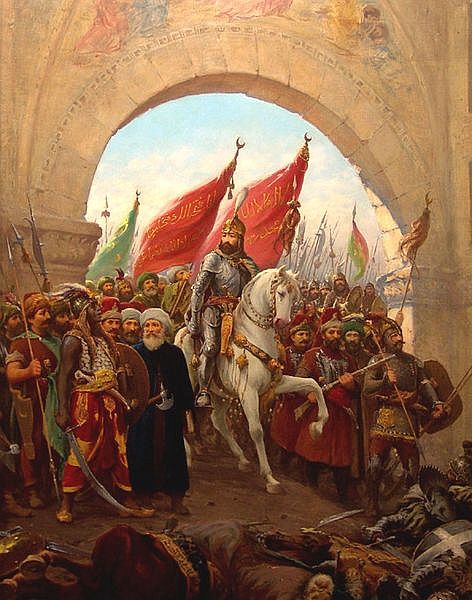Greco-Turkish War – Is it Inevitable?
QUESTION: Message: Hi, huge respect for your eye-opening work. You mention that war is more likely to erupt in the middle east than Korea. Since middle east seems to be in a state of perpetual combat in different areas, do you think war could expand as Turkey is more & more openly hostile to Greece? The average Greek is no longer considering if it happens, more like when it will happen. Does Socrates provide a forecast on this?
Regards,
S, Athens.
 ANSWER: Actually, the primary target for a peak in any Greco-Turkish war will arrive in 2022. What we must understand is we have a major convergence between the Cycle of War and the Economic Confidence Model (ECM). What this means is the increased risk of geopolitical tensions are enhanced by economic downturns. This is what I have been warning about with the collapse of Socialism. As the endless promises of governments crumble to dust, politicians are faced with (1) the overthrow of their governments, or (2) create an external enemy to shift the blame from themselves. Therefore, as the economy turns down, interest rates will invert and rise when people no longer trust a government, and the fabric of the political-economy will be torn apart at the seams. This is historically the most dangerous point for at that moment, the government will turn to create external enemies.
ANSWER: Actually, the primary target for a peak in any Greco-Turkish war will arrive in 2022. What we must understand is we have a major convergence between the Cycle of War and the Economic Confidence Model (ECM). What this means is the increased risk of geopolitical tensions are enhanced by economic downturns. This is what I have been warning about with the collapse of Socialism. As the endless promises of governments crumble to dust, politicians are faced with (1) the overthrow of their governments, or (2) create an external enemy to shift the blame from themselves. Therefore, as the economy turns down, interest rates will invert and rise when people no longer trust a government, and the fabric of the political-economy will be torn apart at the seams. This is historically the most dangerous point for at that moment, the government will turn to create external enemies.
When communism fell in 1989, the military establishment was no longer really needed. They needed to create external enemies to justify maintaining their position, status, and funding. Therefore, Russia continued to be the enemy of the USA simply because they needed one. When I would ask WHY was Russia our enemy if they were no longer Communist, the reply was dumbfounding: “Well they are Russian!” Even Ukraine was a power-play. The Eastern part of the country was ethnically Russian. The country should have simply been split north to south down the language border. Crimea was always a strategic port of Russia. If Japan told America to get out of Okinawa, the US response would be no different than Russia’s – America would occupy Okinawa. So why put sanctions on Russia for doing what the Americans or British have always done throughout history? The answer was just the military establishment needs an enemy – not peace. World peace means they are out of a job. They like those gold stars on their shoulders.
Therefore, as we head down into the economic abyss, the political necessity for war will be on the rise. Ergodan needs an external enemy. He is desperate for war and it will take two fronts – Kurds and the Greeks. He can easily stir the old pot of hate to retain power. This is what any politician does. Even Hillary during the election, as well as all the Democrats, stir the economic pot of class warfare to divide the nation just to get power. They also need that hatred of people who have more to win power. The people cheer and will one day storm the houses of the rich and will set them ablaze or drag them out and hang them. This is traditional and it is one primary reason class warfare is highly dangerous and undermines the foundation of any state. So this is what we face. Look at everything in that context and you will begin to see the conflicts deliberately created by the political class to retain power in ALL societies.
The first modern Greco-Turkish War following the fall of the Ottoman Empire is called the Thirty Days’ War, which took place against a rising Greek concern over conditions in Crete. This centered on the Turkish domination and where relations between the Christians and their Muslim rulers had been deteriorating rapidly. 1896 saw a rebellion on Crete instigated to a large extent by the secret Greek nationalistic society called Ethniki Etairia. They sought to fuel the historic resentment between the Christians and Muslims and they sought to create an opportunity to annex the island for the Greeks. Therefore, by the beginning of 1897, Greece sent arms to Crete to support a rebellion and revolution. On January 21, 1897, the Greek fleet was mobilized and in February Greek troops actually landed on the island proclaiming the annexation of Crete to Greece. The following month, the European powers imposed a blockade upon Greece to stop the arms shipments. The European powers feared that the whole of the Balkans would see vengeance upon the Turks.
The Greeks sent a force to launch an attack on the Turks in Thessaly (April). By the end of April, Greeks were overwhelmed by the Turkish army. The Greeks yielded to pressure from the European powers and withdrew their troops from Crete accepting an armistice on the mainland on May 20th, 1897. On December 4, 1897, a treaty was signed compelling Greece to pay the Turks an indemnity, to accept an international financial commission that would control Greek finances, and to yield some territory in Thessaly back to Turkey. Subsequently, the Turkish troops also left Crete, which had been made an international protectorate in 1898. Crete was finally ceded to Greece by the Treaty of London (1913), which ended the First Balkan War.
The second Greco-Turkish War occurred after World War I, when the Greeks attempted to extend their territory beyond eastern Thrace and the district of Smyrna. These territories had been given to Greece by the Treaty of Sèvres, August 10th, 1920. In January 1921 the Greek army launched an offensive in Anatolia against the nationalist Turks, who had defied the Ottoman government and would not recognize its treaty. In Greece, the war was followed by a successful military coup against the monarchy.
The Treaty of Lausanne concluded on July 24th, 1923, obliged Greece to return eastern Thrace and the islands of Imbros and Tenedos to Turkey, as well as to give up its claim to Smyrna. The two belligerents also agreed to exchange their Greek and Turkish minority populations. To this day, Turkey retains designs on regions it yielded to Greece.
 As the economy and hyperinflation continue in Turkey, the government desperately needs an external enemy. So yes. The tensions will continue to rise and this is seen as inevitable in Athens and the resentment goes back to the Persian invasion of Greece in ancient times. Even the culture of the Minoans were the origins of the Greeks. Anatolia was all Greek cities that filled modern Turkey. The fall of Constantinople in 1453 was the invasion of the Turks who were Muslim. So the traditional ethnic origin was Greek and the language of the Eastern Roman Empire ruled from Constantinople was Greek – not Latin.
As the economy and hyperinflation continue in Turkey, the government desperately needs an external enemy. So yes. The tensions will continue to rise and this is seen as inevitable in Athens and the resentment goes back to the Persian invasion of Greece in ancient times. Even the culture of the Minoans were the origins of the Greeks. Anatolia was all Greek cities that filled modern Turkey. The fall of Constantinople in 1453 was the invasion of the Turks who were Muslim. So the traditional ethnic origin was Greek and the language of the Eastern Roman Empire ruled from Constantinople was Greek – not Latin.
The last Emperor, Constantine XI (1448-1453), died in battle fighting the Turkish invasion. Beware November 2018. Things seem to begin picking up about then.


